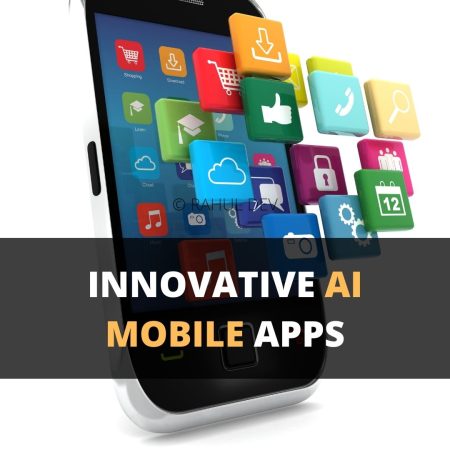Launching AI Mobile Apps
Explore the Process for Launching AI Mobile Apps

Understand Practical Aspects
Understand how AI Patents can help in Innovation Protection

Explore the Process for Launching AI Mobile Apps

Understand how AI Patents can help in Innovation Protection

Protect your innovations across multiple countries and create strong patent portfolio to boost business valuation
Local and global brand protection through international trademark registrations
Extensive research and business writing for technical whitepapers and B2B content products
The domain of app development, particularly in the realm of AI-integrated applications, necessitates a meticulously crafted and cognizant strategy for successful deployment in the Apple Store. This intricacy stems from the multifaceted nature of the marketplace, characterized by rapid technological evolution, diverse consumer preferences, and a burgeoning assortment of available applications. Apple’s ecosystem, in particular, is a testament to this complexity, offering a vast array of innovative AI apps that cater to every conceivable need and function, as highlighted by Apple’s own market analyses. These innovative AI Mobile Apps need a thorough app launch strategy after filing strong AI patents claiming unique aspects of the innovative AI apps. As a strong business strategy, many AI startups initiate the patent process by filing provisional patent application for AI mobile apps.
IP Strategy for AI Mobile App Startups
AI startups benefit from precise patent drafting and writing, ensuring protection of their unique technologies. By articulating the novelty in detail, startups can deter competitors and secure a niche in the competitive AI market. A robust IP strategy provides AI startups with a roadmap to navigate the complexities of intellectual property. It prioritizes the development and protection of core technologies, maximizing the company’s valuation and appeal to investors.
At the time of developing innovative AI mobile apps, articulating invention summaries with clarity enables AI startups to communicate their innovations effectively to stakeholders. This fosters informed decision-making and strategic alignment between inventors, management, and AI patent counsels. Acting as intermediaries, AI startups can facilitate seamless communication between inventors, management, and external patent counsel. This ensures that IP strategies are implemented efficiently and aligned with business goals. Through diligent patent searching for new AI ideas, AI startups can avoid patent infringement scenarios and identify potential AI patent landscapes to enter. It informs the R&D process, guiding startups toward innovation without legal entanglements.
In addition, filing patents and trademarks internationally expands the market reach of AI startups. It safeguards their innovations and brands across borders, which is crucial for AI startups aiming for global presence. Valuating patents accurately allows AI startups to understand the worth of their IP assets. It’s essential for raising capital, licensing negotiations, and strategic planning. Also, assessing the value of trademarks and brands helps AI startups in positioning their products in the market. It’s a critical factor in marketing strategies and can enhance investor confidence. For AI startups, a thorough valuation encapsulates not just the tangible assets but also the IP portfolio. It’s fundamental for financial reporting, investment analysis, and merger and acquisition activities. Each aspect mentioned is crucial for AI startups to leverage their intellectual property for competitive advantage, investment attraction, and strategic growth. A careful application of these components can significantly influence the startup’s trajectory and market success.
This article covers following topics:
AI Apps and Blockchain Tokenization

A structured plan for launching an AI-powered app on the Apple Store must, therefore, address several critical aspects: it must identify and clearly articulate the unique value proposition of the app, understand and leverage the sophisticated algorithms that drive the App Store’s search and recommendation engines, and ensure compliance with Apple’s stringent quality and privacy guidelines. Each of these facets requires an in-depth understanding not only of AI technology and app development but also of the market trends, consumer behavior, and competitive strategies that define success in this digital storefront.
In a market where user attention is the most coveted currency, the differentiated appeal of an AI-powered app cannot be understated. AI can provide personalization, predictive functionalities, and intuitive user interfaces that can significantly enhance user engagement. However, such technical prowess must be paired with a user-centric approach, ensuring that the AI serves to augment the user experience rather than complicate it. It’s about creating a seamless integration of AI that feels natural and indispensable to the app’s functionality.
Furthermore, with the App Store’s dynamic ecosystem hosting millions of apps, visibility becomes a key challenge. It requires leveraging Apple’s app discovery mechanisms effectively, which means understanding the nuances of App Store Optimization (ASO), keywords, metadata, and visual design that align with Apple’s algorithms. These elements must be carefully calibrated to ensure that the app not only meets the technical and aesthetic standards set by Apple but also stands out amidst the competition.
Navigating these complex dynamics necessitates a plan that is as much about technical excellence as it is about strategic foresight. This includes continuous market research, iterative development practices, and an agile response to the ever-shifting sands of the digital app marketplace. It involves crafting an app experience that resonates with users and anticipates market trends, positioning the AI-powered app not just for a successful launch but for sustained growth and prominence within the Apple Store.
It is interesting to note how recent advancements in blockchain and tokenization confer distinct benefits to AI startups, particularly those venturing into the burgeoning Web3 domain. AI startups can harness blockchain token projects to democratize data access and incentivize contributions to AI models. By integrating tokens, these projects can facilitate secure and transparent transactions, bolstering trust among users and contributors. Obtaining a legal opinion on utility tokens can provide AI startups with a clear regulatory standing, ensuring compliance and mitigating legal risks associated with token issuance. This clarity can attract informed investors and users who value legal due diligence. Also, tokenization can revolutionize AI startups by providing a novel means to raise capital. By converting assets into digital tokens, startups can access a wider pool of investors, enhance liquidity, and tailor ownership structures to their strategic goals. Navigating the token listing process with meticulous attention to exchange listing documentation can enhance an AI startup’s credibility. Adherence to rigorous listing standards can signal market readiness and operational excellence to potential investors. Comprehensive exchange listing documentation is critical for AI startups to ensure that all technical and regulatory prerequisites are met. This thoroughness can streamline the listing process and fortify investor confidence.
In addition, the use of Simple Agreements for Future Tokens (SAFT) can provide a secure framework for investors to engage with AI startups. This preemptive approach to token issuance can serve to align investor interests with long-term project success. Moreover, AI startups can incorporate Decentralized Autonomous Organization (DAO) structuring to create a resilient governance framework. DAOs can offer transparent decision-making processes and equitable stakeholder management, vital for sustaining community trust. The Web3 business model presents an opportunity for AI startups to operate on decentralized networks, reducing dependency on centralized platforms. This can lead to innovative service delivery and new value propositions, leveraging the collective capabilities of blockchain, AI, and tokenization.
In conclusion, the intersection of AI and blockchain through tokenization offers AI startups an array of strategic advantages. From legal compliance to innovative funding mechanisms and robust governance structures, these elements collectively underpin a competitive edge in the Web3 ecosystem.

As a business coach and thought leader, I cannot emphasize enough the importance of innovation, new software patents, mobile apps, and patents for tech companies, startups, and entrepreneurs. The world is rapidly evolving, and staying ahead of the curve is vital for success. Embracing technological advancements such as blockchain and AI can unlock unprecedented opportunities, streamline operations, and propel businesses into the future with competitive valuation via intangible assets.
Click Here for AI Startup Valuation Guide.
For instance, blockchain technology can revolutionize supply chain management and secure data sharing wherein innovative business models are explained to the audience via technical whitepapers, while AI can automate and optimize decision-making processes. Mobile apps are no longer just a luxury; they have become essential tools for engaging customers and offering personalized experiences. Furthermore, securing digital innovation patents is crucial for protecting intellectual property, fostering innovation, and maintaining a competitive edge. By investing in these areas, businesses can position themselves as industry pioneers and pave the way for a prosperous future after thoroughly conducting the due diligence and reviewing the legal opinion letters, which in case of digital assets can assist in determining the tokens as utility assets or coins as utility tokens before listing the assets at an exchange.
Our team of advanced patent attorneys assists clients with patent searches, drafting patent applications, and patent (intellectual property) agreements, including licensing and non-disclosure agreements. Advocate Rahul Dev is a Patent Attorney & International Business Lawyer practicing Technology, Intellectual Property & Corporate Laws. He is reachable at rd (at) patentbusinesslawyer (dot) com & @rdpatentlawyer on Twitter.
Quoted in and contributed to 50+ national & international publications (Bloomberg, FirstPost, SwissInfo, Outlook Money, Yahoo News, Times of India, Economic Times, Business Standard, Quartz, Global Legal Post, International Bar Association, LawAsia, BioSpectrum Asia, Digital News Asia, e27, Leaders Speak, Entrepreneur India, VCCircle, AutoTech).
Regularly invited to speak at international & national platforms (conferences, TV channels, seminars, corporate trainings, government workshops) on technology, patents, business strategy, legal developments, leadership & management.
Working closely with patent attorneys along with international law firms with significant experience with lawyers in Asia Pacific providing services to clients in US and Europe. Flagship services include international patent and trademark filings, patent services in India and global patent consulting services.
Global Blockchain Lawyers (www.GlobalBlockchainLawyers.com) is a digital platform to discuss legal issues, latest technology and legal developments, and applicable laws in the dynamic field of Digital Currency, Blockchain, Bitcoin, Cryptocurrency and raising capital through the sale of tokens or coins (ICO or Initial Coin Offerings).
Blockchain ecosystem in India is evolving at a rapid pace and a proactive legal approach is required by blockchain lawyers in India to understand the complex nature of applicable laws and regulations.